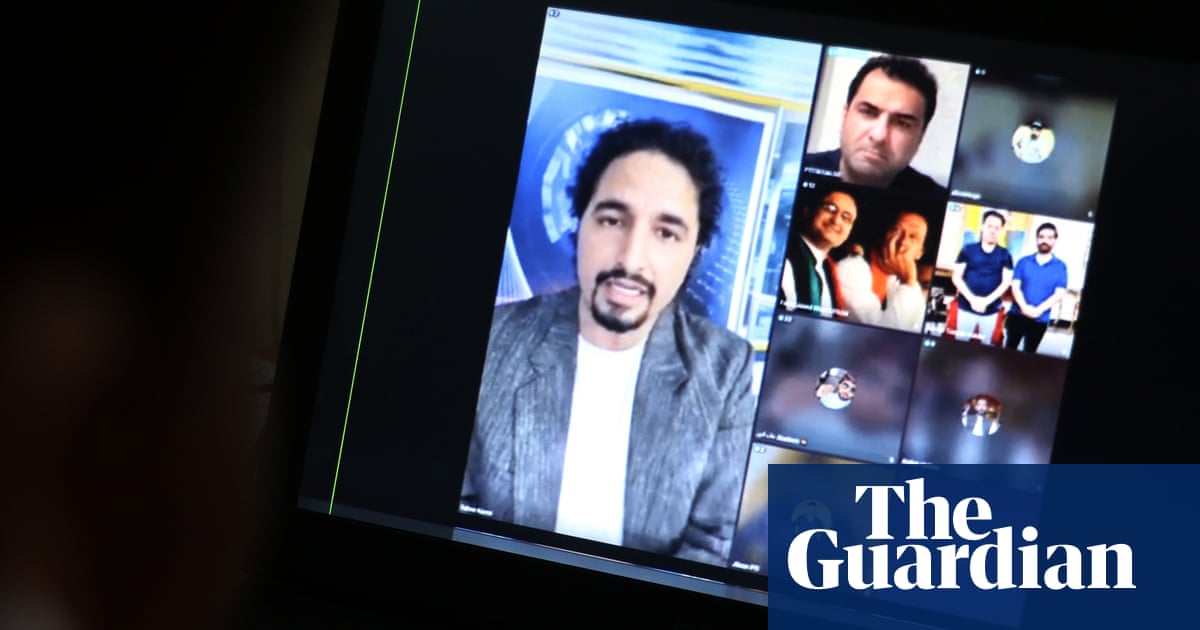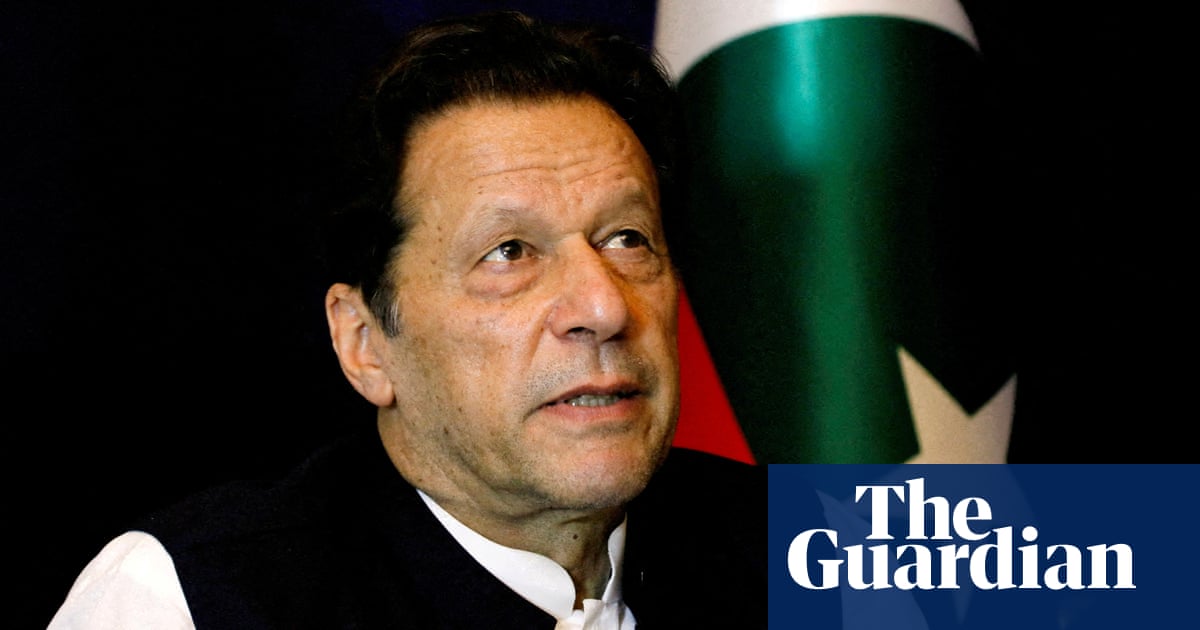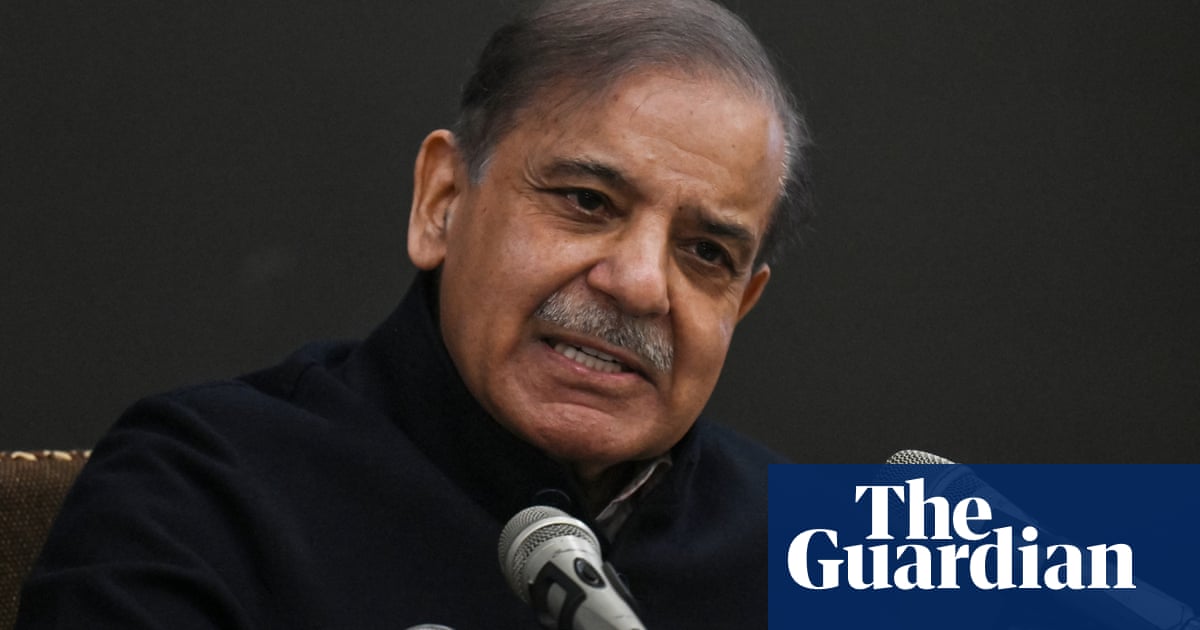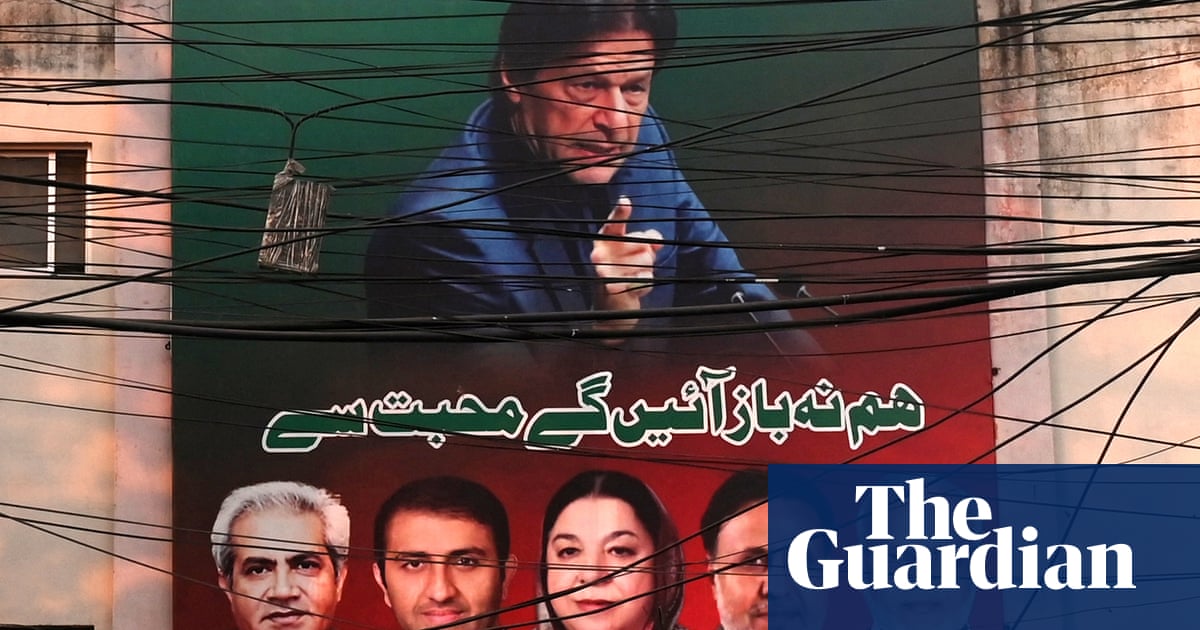
For months, police have blocked Arsalan Hafeez from entering into the Pakistani constituency where he will be standing for election this week.
Since he put himself forward as the candidate for Pakistan Tehreek-e-Insaf (PTI), the political party led by Pakistan’s now incarcerated former prime minister Imran Khan, Hafeez alleges that the state’s machinery has done everything to prevent him being able to contest his district of Narowal in the state of Punjab.
He claims rigorous police checkpoints have repeatedly blocked his entry and all attempts to campaign and hold rallies. Even attempts to talk to his potential voters have been obstructed by officers, he says. He also accuses police of attempting to intimidate him and his family to prevent him from putting forward his nomination papers at all.
“We have been harassed constantly by police, many of my workers arrested for trying to campaign, and I can’t even go into my constituency,” said Hafeez. “They have also registered many false cases against me. They are going after me like a criminal when all I am trying to do is freely fight an election.”
Hafeez’s case is far from unique. Since violent protests erupted last May, leaders and workers of PTI allege they have undergone an unprecedented crackdown – including intimidation and arrests – designed to destroy the party and prevent them taking part in Pakistan’s long-delayed elections, to be held on 8 February. On Thursday, 14 PTI candidates will be running from jail.
Khan, who has languished behind bars since his arrest in August, was suddenly sentenced in three separate cases last week: on Tuesday given 10 years in prison for allegedly leaking state secret, given 14 years in a corruption case on Wednesday, and on the weekend sentenced to seven years after it was ruled his marriage was illegal.
The flurry of harsh sentences was seen as a clear message that PTI would not be allowed to return to power this week. “It’s grotesque,” said Salman Akram Raja, a senior PTI leader running in the election. “Candidates and people have been made to fear for their privacy, for their dignity, for their home, for their liberty if they come out and openly support PTI.”
Many in PTI, and voters on the streets, expressed concern that the election would be rigged to bring back the favoured candidate of Pakistan’s powerful military, the three-time former prime minister Nawaz Sharif, to power. A report by Crisis Group this week on the elections stated that the crackdown on PTI “could have dire implications for the party’s electoral prospects” and warned of “tarnished elections” that could lack credibility.
Murtaza Solangi, the information minister in Pakistan’s caretaker government, hit back at the allegations, calling them “absurd, baseless and vehemently denied”, and said that most of those arrested had been involved in “violent attacks against the military and civilian installations”.
“Our constitution ensures free speech so they are able to make any accusation against the state,” said Solangi. “No civilised country tolerates violent attacks against state.”
In a statement on the eve of the election, Pakistan’s foreign office said it was “fully committed to foster an inclusive democratic process”.
The sustained assault against Khan and PTI is seen to be driven by the country’s powerful military, which has a long history of meddling in Pakistani politics. It was the military’s backing that was seen to bring Khan to power in 2018 but after the relationship fell apart, it helped orchestrate his removal from office in 2022.
In the aftermath, Khan publicly turned on the military generals who had been his former allies, accusing them of controlling politics, bearing a personal grudge against him and attempting to assassinate him. Khan’s damning rhetoric against the army fuelled unprecedented public anger on the streets towards the military, long seen as the kingmakers in Pakistan’s politics and the main obstacle to the country’s stilted progress towards democracy.
The state responded by arresting Khan, filing hundreds of cases against him and barring him from running for office, and carrying out a sustained campaign of harassment of thousands of PTI workers and supporters.
Dozens of senior PTI leaders have alleged they were put under pressure or even tortured into leaving the party, while many others who stayed in the party have remained in jail. PTI candidates who have managed to stand say they have been prevented from holding rallies and their posters are systematically torn down.
The election commission also ruled the party was not allowed to use its widely recognised symbol, the cricket bat, a devastating blow in a country with a high rate of illiteracy where the party symbol is how candidates are mostly identified. Without a unified symbol, many PTI candidates, including Hafeez, have also been forced by the election commission to officially stand as independents.
While in power, Khan’s mishandling of the economy and crackdown on his political opponents drew heavy criticism and lost him widespread credibility. Since being removed from office, however, his populist rhetoric is seen to have heavily polarised the electorate, while the crackdown he has endured has only driven up his popularity.
On the streets of Lahore and Islamabad there was a mood of defiance among voters, and anti-military sentiments ran high as many felt the outcome of the election was already fixed by the generals.
Riaz Hussain, an interior designer in Lahore, was jailed for eight months after he was picked up by police and wrongly accused of taking part in violent PTI protests, but said he would still be voting for Khan’s party.
“I will vote for Imran Khan and so will everyone I know,” he said. “He is the most honest and trustworthy leader in Pakistan. But we are facing a brazen crackdown before the general elections. I personally know many innocent people are still behind the bars. If we say we will vote for Khan, we will be arrested immediately.”
Shahzad Ali had a poster of Sharif outside his cafe to appease the authorities, but said in reality he would be voting for PTI. “Me and all my friends will vote for Khan. But Nawaz Sharif will win because the military want him to win and he has support from the police, military and entire government. The military decide the result,” he said.
With conventional campaigning largely obstructed, PTI have instead turned to innovative methods of campaigning using social media platforms including YouTube, X, Facebook and TikTok, an increasingly strategic way to reach out to Pakistan’s voters, 67% of whom are between the ages of 18 and 45.
This includes creating three AI-generated video speeches to make it appear as if Khan was addressing voters even as he sat in jail.
The first speech was broadcast at one of PTI’s online rallies, which was streamed live across all their social media channels to an audience of over 6 million people, in which Khan spoke out against the crackdown on PTI and told audiences that “history will remember your sacrifices”. Though the internet was shut down in Pakistan as the online event was taking place, PTI estimates that over 20 million people have now watched the speech.
It was such a success that two more Khan AI-speeches were generated, based on shorthand notes given to his lawyers: one discussing the war in Gaza at an international conference, and another, created just a few days before the election, in which Khan urged people to come out and vote in large numbers.
With physical rallies made largely impossible, the party has been holding weekly “virtual jalsas [rallies]” on social media, including two TikTok rallies that drew upwards of 16 million likes. A tool was also built on Facebook where voters can directly message Khan to ask about their local PTI candidate, and receive a personalised response.
Jibran Ilyas, PTI’s head of social media, said even as the state had attempted to shut down many of these online campaigning methods, “in this day and age, they can not stop the flow of information”.
“The crackdown on our party has only forced us to innovate even more, and I can see from our data how many people in Pakistan are seeking out information about their PTI candidates,” said Ilyas. “We are doing out best to get the highest turnout in the history of Pakistan and I’m optimistic that will bring us back to power.”












